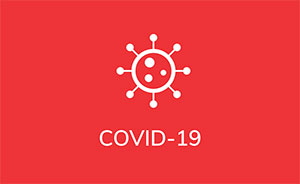More news reports are getting the word out about the lack of reliable protection even when fully vaccinated if you have CLL or other immunocompromising conditions. We are pleased, but there is much left to do.
The first report from STATNEWS features fellow CLL patient and advocate, Michele Nadeem-Baker, whom we have already introduced you to here. We also meet Greg Simon, another CLL patient and health policy consultant, who led the Biden Cancer Initiative. Greg did not respond with any bump-up in his neutralizing antibodies after the vaccine. “I realize that I’m part of a trend. I’m not an exception, which is too bad,” said Greg and so he is still being cautious, joining Dr. Lindsay Ryan, an ER doctor who is also immune compromised, who told her story of being “vaccinated but not protected” in JAMA. JAMA readers will also find my brief commentary on her article.
Michele is featured for a third time in this article in USA Today, as is Dr. Robert Montgomery, a transplant surgeon and recipient of a solid organ transplant himself. Transplant patients have a different type of immune suppression and generally have better vaccine responses compared to most blood cancer patients, especially chronic lymphocytic leukemia patients, as reported in this article: Cellular and humoral response after mRNA-1273 SARS-CoV-2 vaccine in kidney transplant recipients. A booster or 3rd dose of the vaccine helped Dr. Montgomery, as it has helped other post-solid organ transplant patients (see: Safety and Immunogenicity of a Third Dose of SARS-CoV-2 Vaccine in Solid Organ Transplant Recipients: A Case Series from the Annals of Internal Medicine) and this Three Doses of an mRNA Covid-19 Vaccine in Solid-Organ Transplant Recipients from NEJM. It has not been well studied yet in CLL and, sadly, there are a few reports of no boost from a booster. Trials with boosters are coming and should help with answers. All CLL and immunocompromised patients in France are being offered a 3rd jab and the data from that large scale effort should be informative.
We will keep hammering away at this topic because we are still hearing that too many of the general public, CLL patients as well as doctors, are unaware that the vaccines may not reliably protect the immunocompromised.
Consider using our guideline to help explain this reality to your friends and family: Explaining to Family and Friends Why the CDC Guidelines for Those Vaccinated Against COVID-19 Do Not Apply to Chronic Lymphocytic Leukemia Patients.
CLL Society supports the international effort for more research and better access to options that might help, including new therapeutics, adjuvants that upregulate the immune system, vaccine booster shots, repurposing old medications, and perhaps most promising, neutralizing monoclonal antibodies directed against SARS-CoV-2 that might provide passive immunity, explained more in this article.
There are many dedicated people and nonprofits across the world working on this problem. Do not despair. Answers are coming, stay tuned, but in the meantime, stay safe until we know for sure how much protection is provided by vaccinations for our CLL community.
Stay strong. We are all in this together.
Brian
Brian Koffman MDCM (retired) MS Ed
Co-Founder, Executive VP and Chief Medical Officer
CLL Society, Inc.



